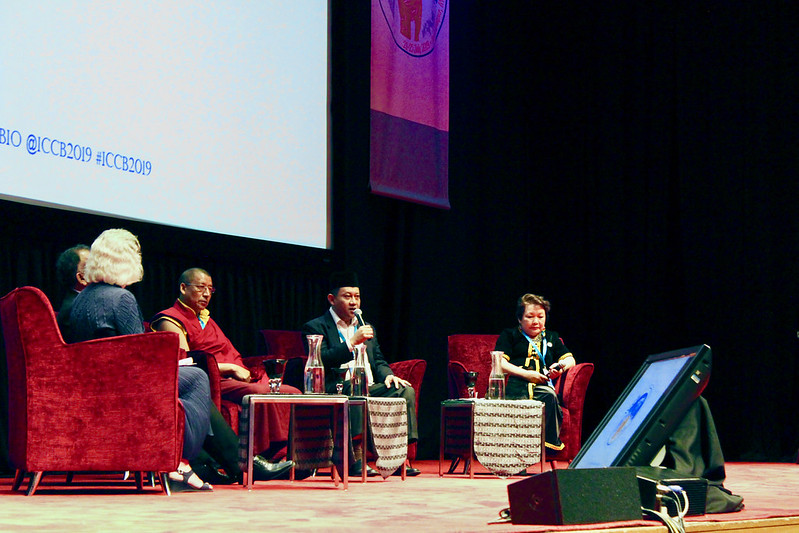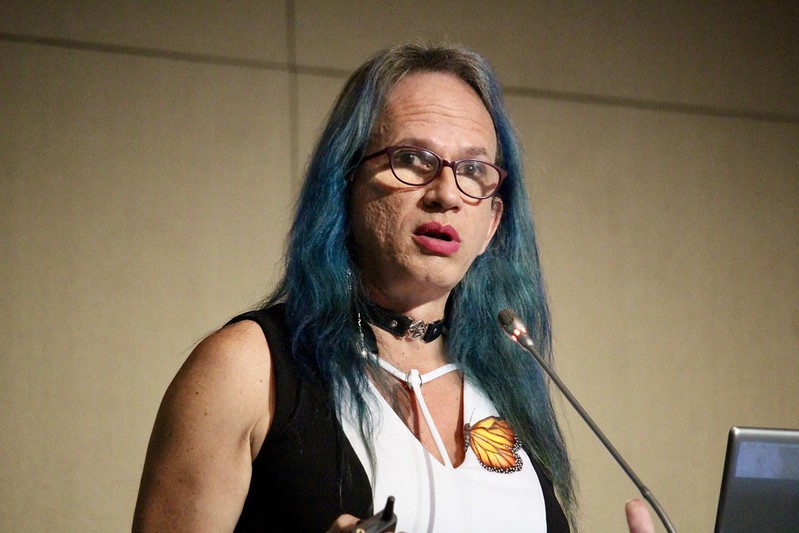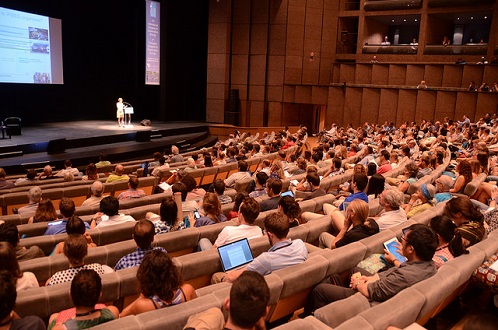ICCB 2025 Plenary Speakers
Plenary speakers shape perspectives on the future of conservation, inspire the conservation community to confront shared challenges, illuminate new ideas and possibilities for biodiversity conservation with thought-provoking insights for new pathways in conservation, and more.
Special consideration is given to speakers who focus on solutions to conservation challenges, use inter-disciplinary approaches to address cutting-edge questions in conservation science, and are uniquely positioned to address social and racial justice in conservation and the persistence of bias and inequity in conservation. ICCB prioritizes speakers who historically face systemic barriers to participation on account of race, gender or sexual orientation.
ICCB 2025 Plenary Speakers
.jpg)
Binbin Li
Associate Professor, Duke Kunshan University
Dr. Binbin Li is the Associate Professor at Duke Kunshan University and holds a secondary appointment with the Nicholas School of the Environment at Duke University. She focuses on the synergy between biodiversity conservation and sustainable development under climate change. Her research covers conservation planning to promote synergetic solutions to climate change mitigation and human health, One Health framework, endangered and endemic species conservation in China such as giant pandas, sustainable infrastructure building in the Belt and Road Initiative and bird collisions in urban environment. She promotes to use of innovative technology, market tools, citizen science, and policies to solve conservation problems and assist sustainable local community development.
Dr. Li has been awarded Inaugural EC50 by Explorers Club, one of the world’s most inspiring explorers. She serves as the co-chair of International Union for Conservation of Nature (IUCN) WCPA-protected planet specialist group, and serves on the IUCN Species Survival Commission, World Commission on Protected Areas and the Commission on Prevention of Viral Spillover convened by Lancet and PPATS. She is the editor-in-chief of Integrative Conservation and associate editor of Frontiers of Ecology and Evolution. She also serves on the editorial board of Conservation Biology, Global Ecology and Conservation, Biodiversity Science and National Parks. Dr. Li is engaged in science communication and nature education. She has been awarded Nature Photographer of the Year in the Chinese National Geography China Wildlife Image and Video Competition in 2022. She is the founder of the China Anti-bird Collision Action Alliance, the largest citizen science project in China. She is also the board director of SilverLining Conservation Center, which aims to increase the capacity of storytelling for conservation practitioners and to change public behaviors using media instruments.
Plenary Talk: "From wilderness to cities, can we achieve synergy between biodiversity conservation and development?"
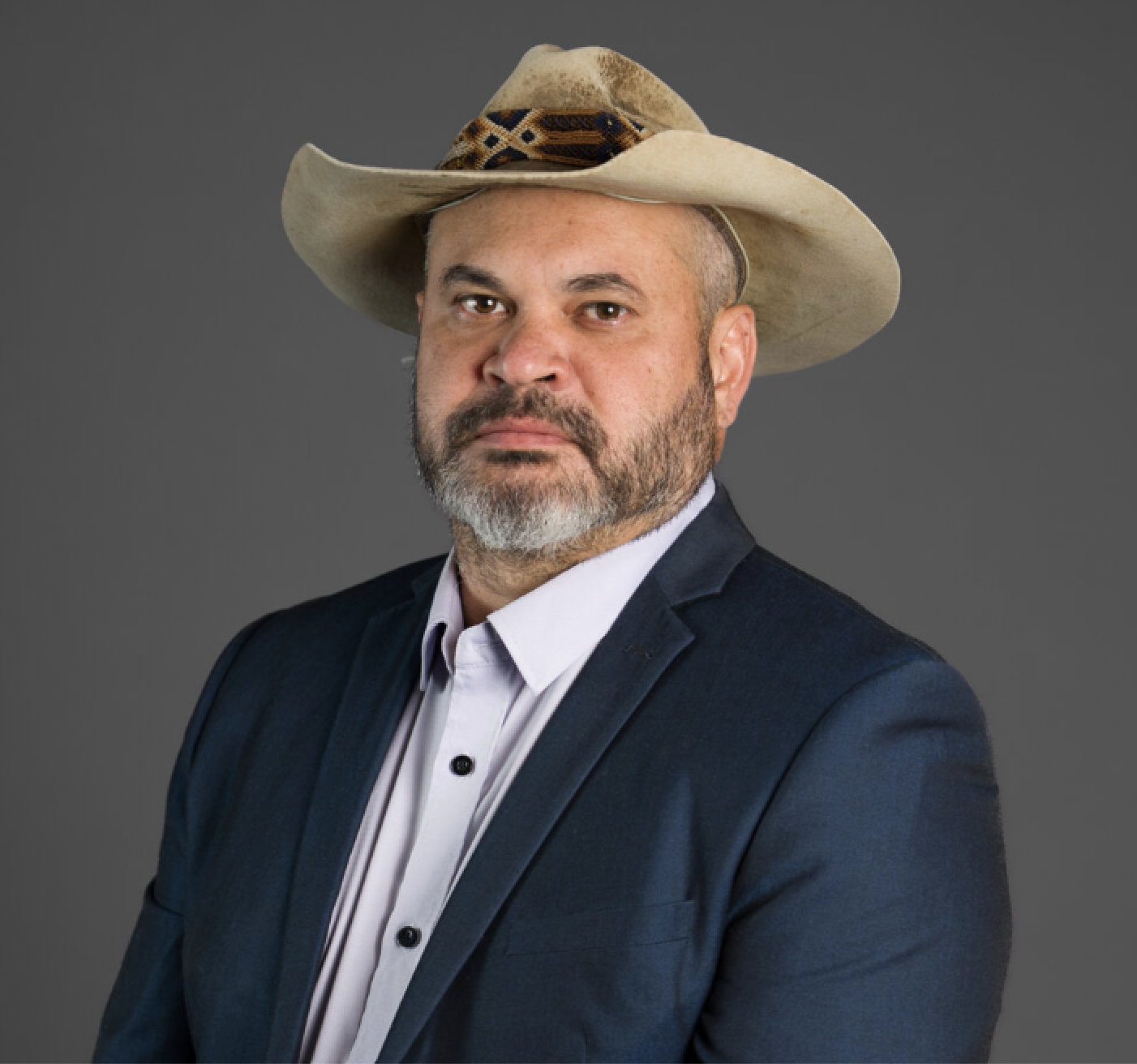
Ricky Archer
Director of National Parks, Parks Australia
On Thursday 30 November 2023, Ricky Archer started the role as the Director of National Parks. Before that, he was the Chief Executive Officer of the North Australian Indigenous Land and Sea Management Alliance. For many years, he worked as a ranger and in conservation and leadership positions. He has qualifications in conservation and land management, social science, and management. Ricky is a Djungan man from the Western Tablelands region of North Queensland with high levels of cultural competency. He has a great deal of experience and understanding of the issues around joint management of parks, land, and sea management. He has also managed relationships between First Nations people, the conservation sector, and community. Ricky also has experience in working with government through his roles on a range of Commonwealth committees, including:
- the Indigenous Advisory Committee
- the National Landcare Advisory Committee
- his contribution to the Samuel review – the independent Review of the Environment Protection and Biodiversity Conservation Act 1999.
Plenary Talk: "Investing in our Future: The Benefits of Commonwealth National Parks"
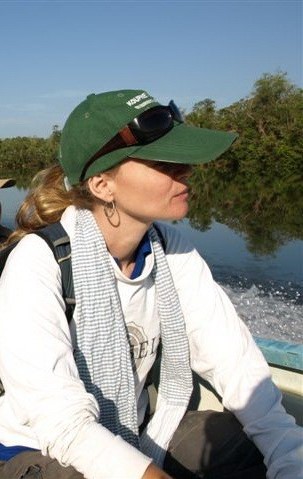
Amy Van Nice
Director of Development/Environmental Education Technical Advisor, Wildlife Alliance
Amy Van Nice is the Director of Development and Environmental Education Technical Advisor at Wildlife Alliance, based in Phnom Penh, Cambodia. She has been involved in wildlife counter trafficking initiatives, wildlife rescue, and community engagement for over 15 years, leading in-country activities under various counter trafficking programs, conducting extensive anti-smuggling trainings at ports and airports with government agencies and the private sector, developing partnerships across Africa, the Middle East, and Asia, and leading Cambodia’s only environmental education team. She is also an experienced rescuer, having rehabilitated countless animals, both domestic and wild.
She obtained an MA in International Relations from the University of Kent at Brussels and her BA in Political Science, Asian Studies, and French from the University of Arizona. She also trained as an EMT-I in the county of Los Angeles and serves as a mentor with the University of Arizona Mentor Society, helping young adults navigate academic pursuits and international careers. Amy has traveled to 70+ countries and her primary passions in life are to see the world and to make a positive impact for the humans and animals that share it.
Plenary Talk: “The Elephant in the Room: Hard Truths & Anecdotes from the Fields of Wildlife Trafficking & Animal Rescue”
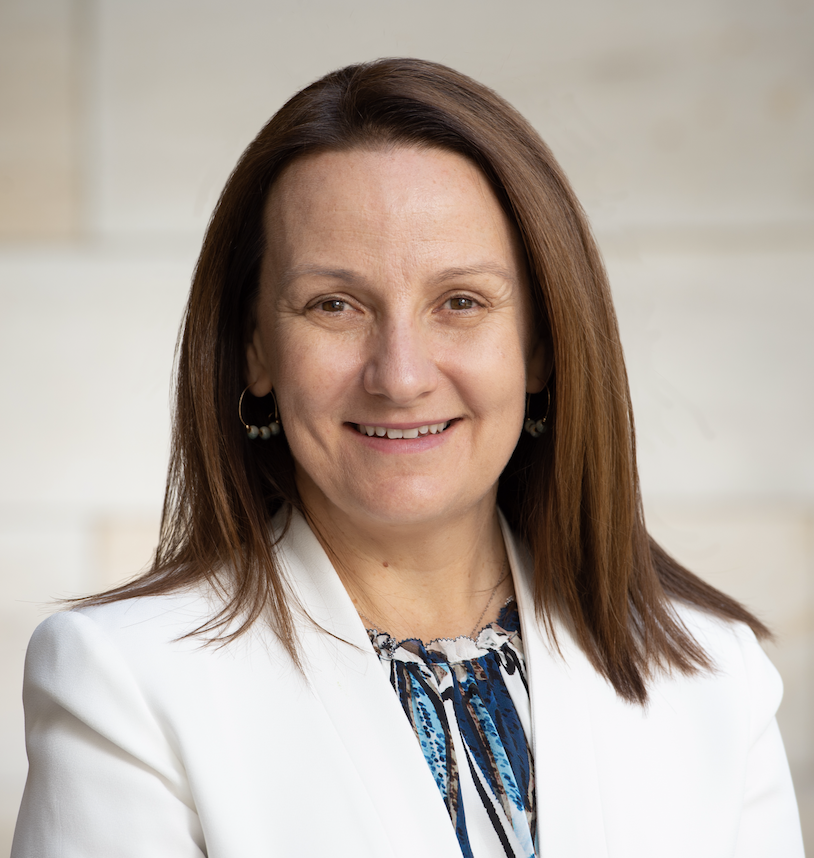
Kerrie Wilson
Queensland Chief Scientist, Queensland Government
Professor Kerrie Wilson commenced her role as Queensland Chief Scientist on 1 November 2023. She oversees Queensland’s first Science Strategy—a comprehensive, whole-of-government framework to support the generation and translation of globally significant science, ensuring sustainable economic growth.
With a distinguished career in academia and conservation, Professor Wilson has held prominent positions at Queensland University of Technology (QUT), including Pro Vice-Chancellor (Sustainability and Research Integrity) and Executive Director of the QUT Institute for Future Environments. Her previous leadership roles include Director of the ARC Centre of Excellence for Environmental Decisions, Director of Conservation for The Nature Conservancy Australia, and she currently serves as a natural sciences expert on the Australian Heritage Council.
Professor Wilson holds a Bachelor of Environmental Science from The University of Queensland and a PhD from The University of Melbourne, completed in collaboration with the UN Environment Programme’s World Conservation Monitoring Centre in Cambridge, UK.
Outside of her professional commitments, Professor Wilson is an avid outdoor enthusiast, regularly exploring Queensland’s national parks with her family.
Plenary Talk: "Influencing environmental science and policy from inside the tent"
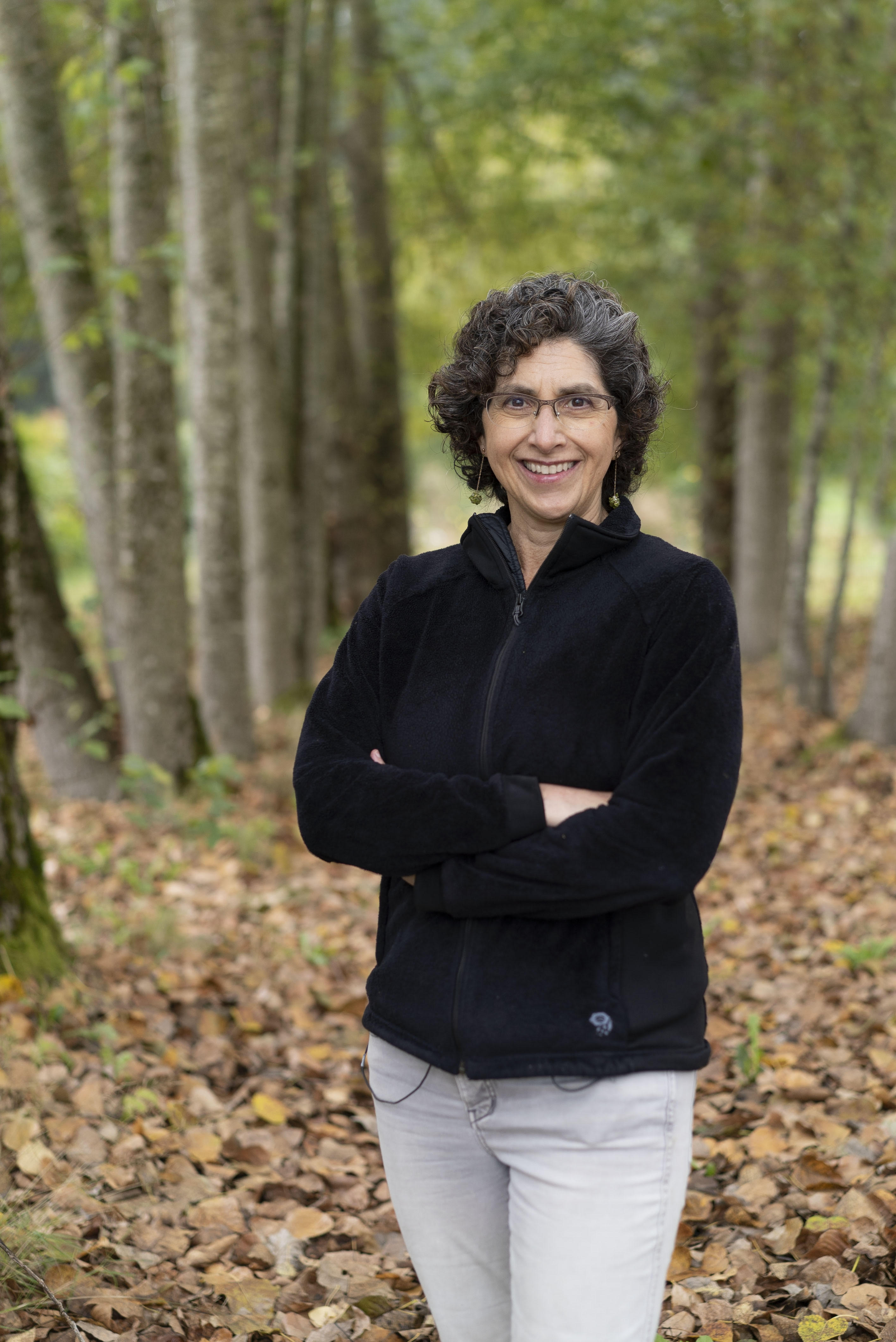
Claire Kremen
President’s Excellence Chair in Biodiversity, University of British Columbia
Claire Kremen is President’s Excellence Chair in Biodiversity and Professor at University of British Columbia in the Institute for Resources, Environment and Sustainability and the Department of Zoology. Her current research focuses on how to improve the connectivity and sustainability of farming landscapes through agrobiodiversity and agricultural diversification practices. At UBC, she teaches courses on social-ecological systems and the connections between biodiversity, human and planetary health, and leads the Interdisciplinary Biodiversity Solutions Collaboratory (IBioS), which conducts community-engaged research to advance just, equitable, and inclusive interdisciplinary solutions for biodiversity and people to thrive. Before coming to UBC, she was a professor at Princeton University and then University of California, Berkeley, where she co-founded the Center for Diversified Farming Systems and the Berkeley Food Institute. Prior to her university appointments, she worked for over a decade for the Wildlife Conservation Society and the Xerces Society, designing protected area networks and conducting biodiversity research in Madagascar. She has won various honors such as the MacArthur Fellowship (2007) and the Volvo Environmental Prize (2020), was elected a fellow of the California Academy of Sciences and an Honorary Fellow of the Royal Entomological Society and is a highly-cited researcher (since 2014) with over 200 publications.
Plenary Talk: "Food, biocultural diversity and working lands conservation"

